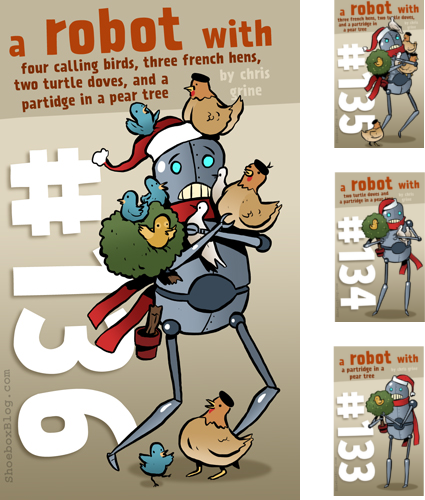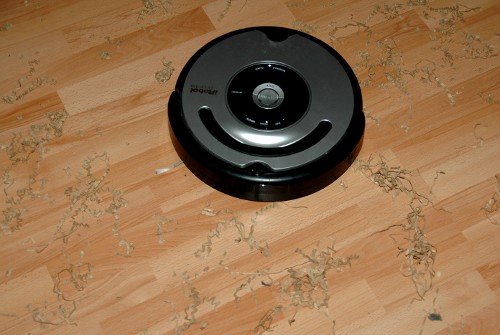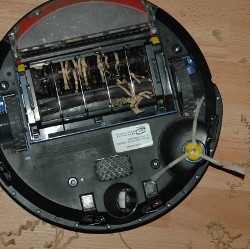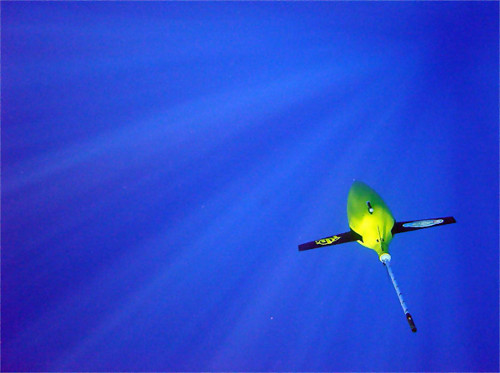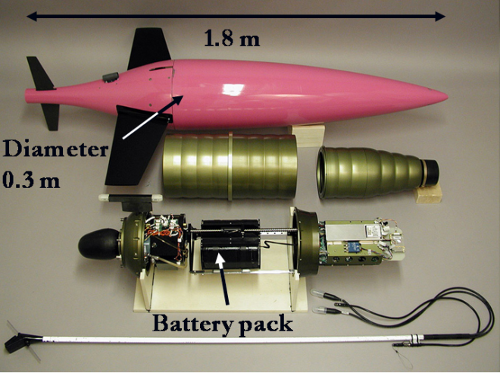Via Planet Robotics bin ich auf einen Blogeintrag von BotJunkie gestoßen, der bei CNN eine wunderbaren Warnung von Wissenschaftlern aus dem Jahr 1998 gefunden hat. Die Wissenschaftler warnen eindringlich vor einer kommenden Roboterapokalypse, die da schneller kommen wird, als gedacht.
Within a few minutes, [a] microprocessor based robot can learn not to bump into a barrier. No one programs the robot’s actions, and its creator isn’t exactly sure how it will behave in any given situation.
Within 10 years, they predict that similar but more advanced machines, equipped with artificial intelligence, will be as clever as humans. Soon after, they say, the man-made objects could become more intelligent than their creators — and capable of taking over.
“Next century’s global politics will be dominated by the question of should humanity build ultra-intelligent machines or not,” said Hugo de Garis, who’s already created an artificially intelligent machine.
Er hat im Prinzip recht: Ein Roboter, der maschinell lernt, wie er sich zu verhalten hat und es nicht einprogrammiert bekommt, ist mitunter nicht mehr vollständig in der Hand des Erschaffers. Das Lernen kann überwacht werden, häufig ist das Ergebnis des Lernens allerdings nicht mehr einfach verständlich oder interpretierbar und damit nicht exakt vorhersagbar. Aber ist das Grund zur Panik?
Ein weiterer der Wissenschaftler, Kevin Warwick, lässt sich sogar zu der Aussage hinreißen, er sehe keinen Grund, warum Roboter nicht „in den nächsten 20 bis 30 Jahren intelligenter sein werden als Menschen“. Da diese Aussage von 1998 stammt, haben wir heute nur noch 10 bis 20 Jahr bis zur Versklavung durch intelligente Roboter.
“We could never be sure these artellects, as we call them — artificial intellects — wouldn’t decide that humanity is a pest and try to exterminate us, and they’d be so intelligent they could do it easily,” de Garis said.
“We’re talking in the future the end of the human race as we know it,”
Warwick said.
Ganz schön harte Aussagen von Wissenschaftlern, die auf diesem Gebiet tätig sind. Erstaunlich panische Aussagen, bedenkt man, dass einige führende Wissenschaftler der Künstlichen Intelligenz zur Zeit eher formulieren, dass sie noch kein wirkliches Licht am Horizont sehen, was tatsächliche künstliche Intelligenz anbelangt.
Naja, vieleicht sollten wir alle trotzdem so langsam in geordnete Panik verfallen.
